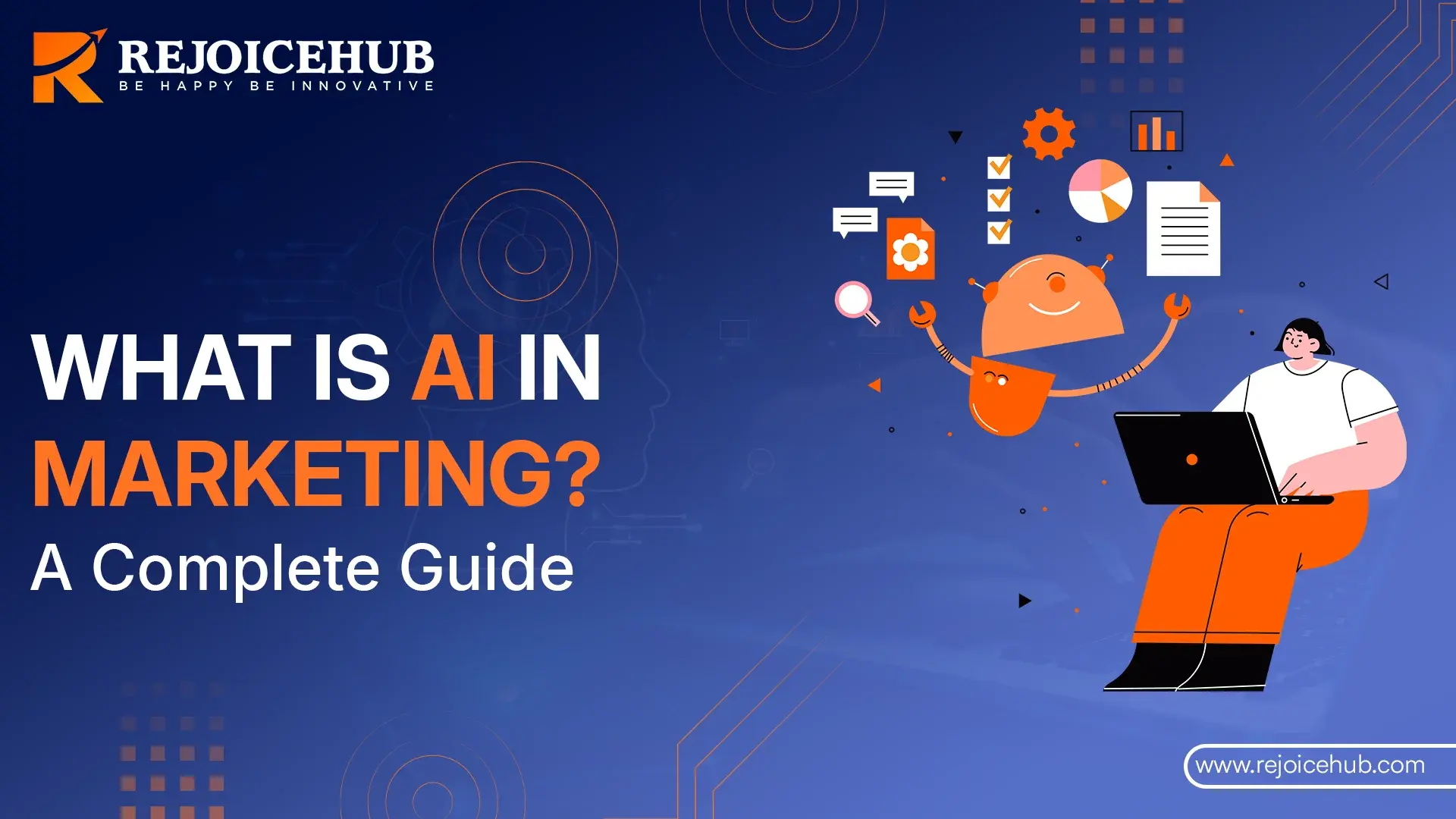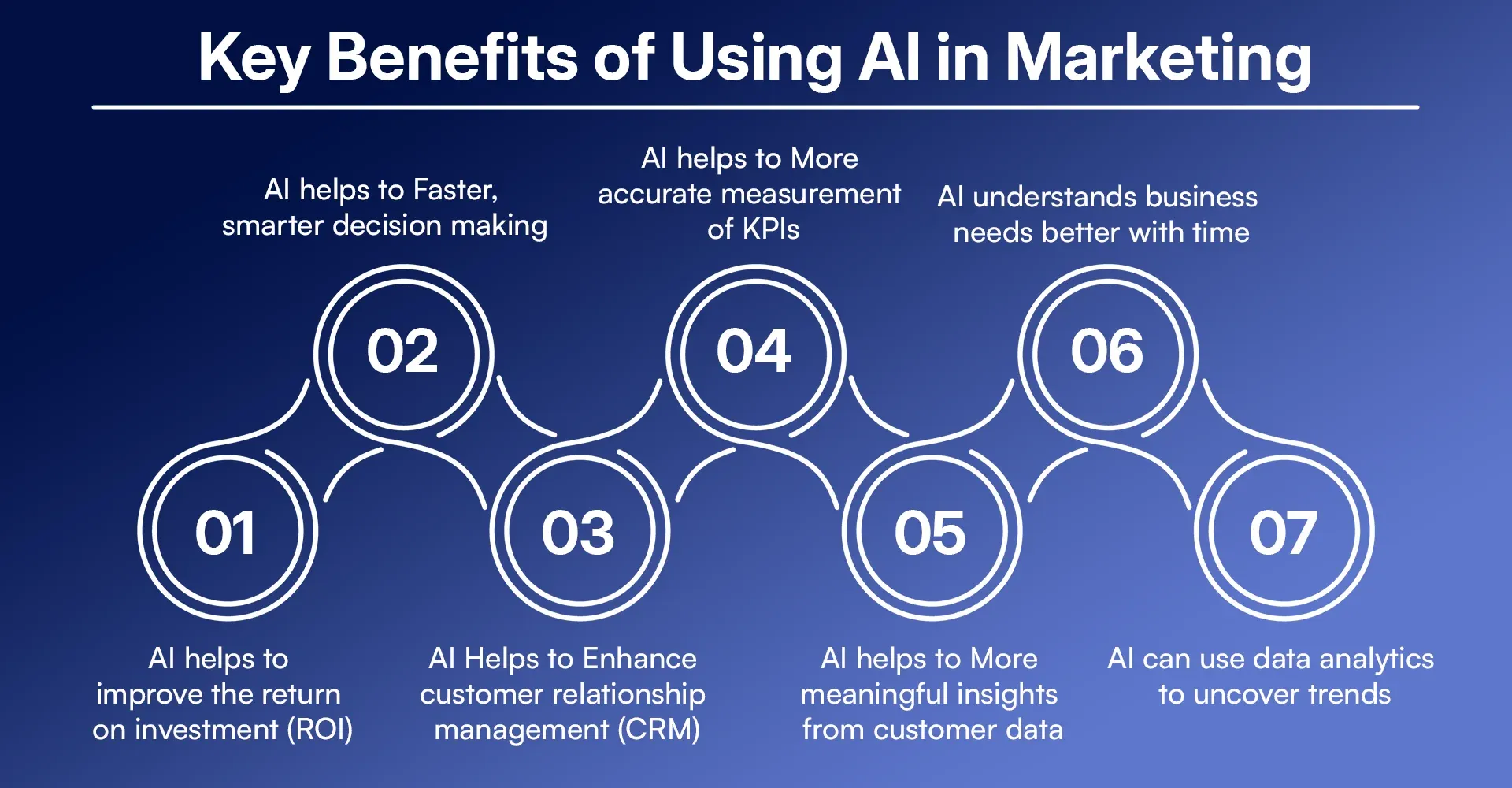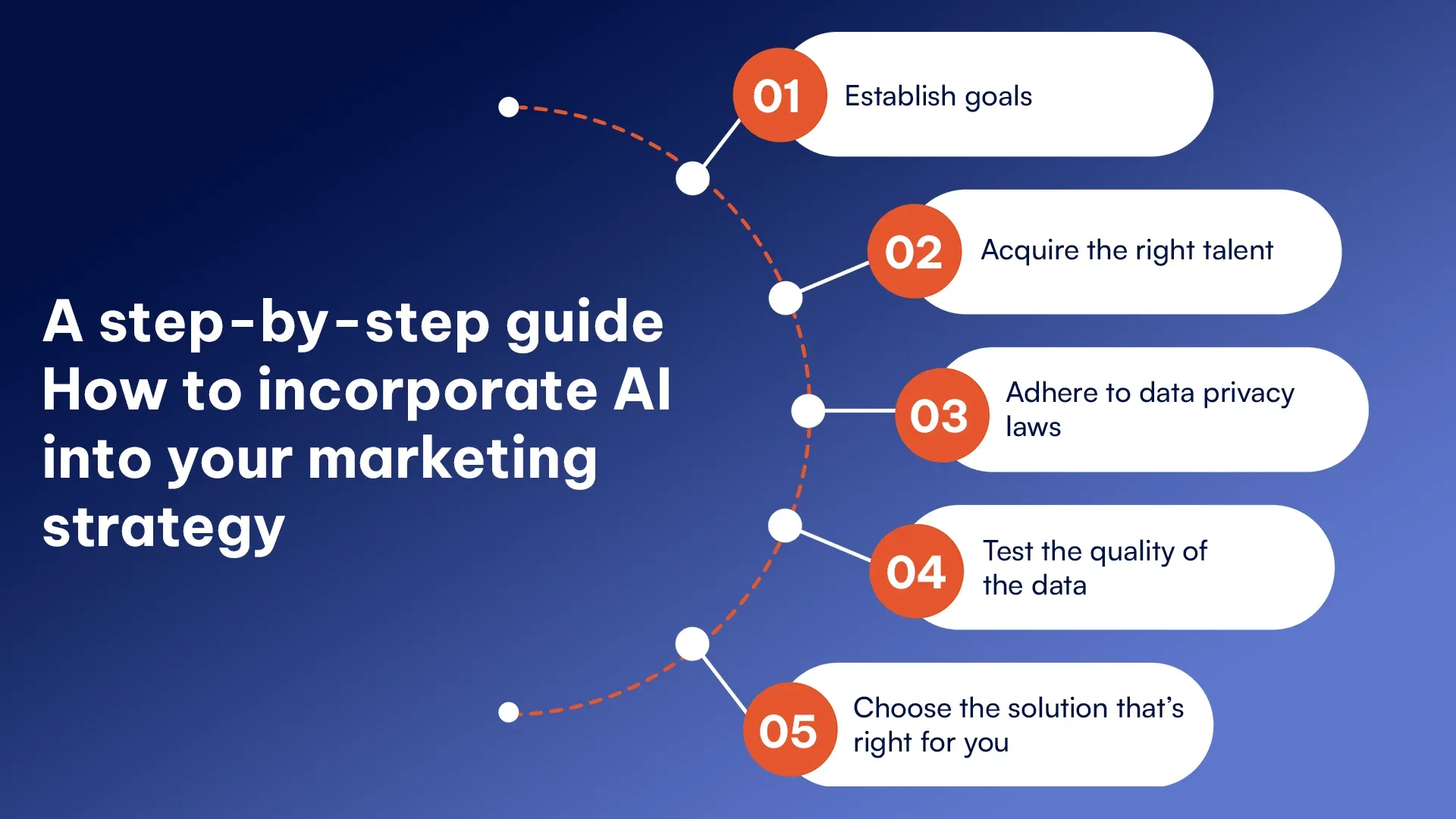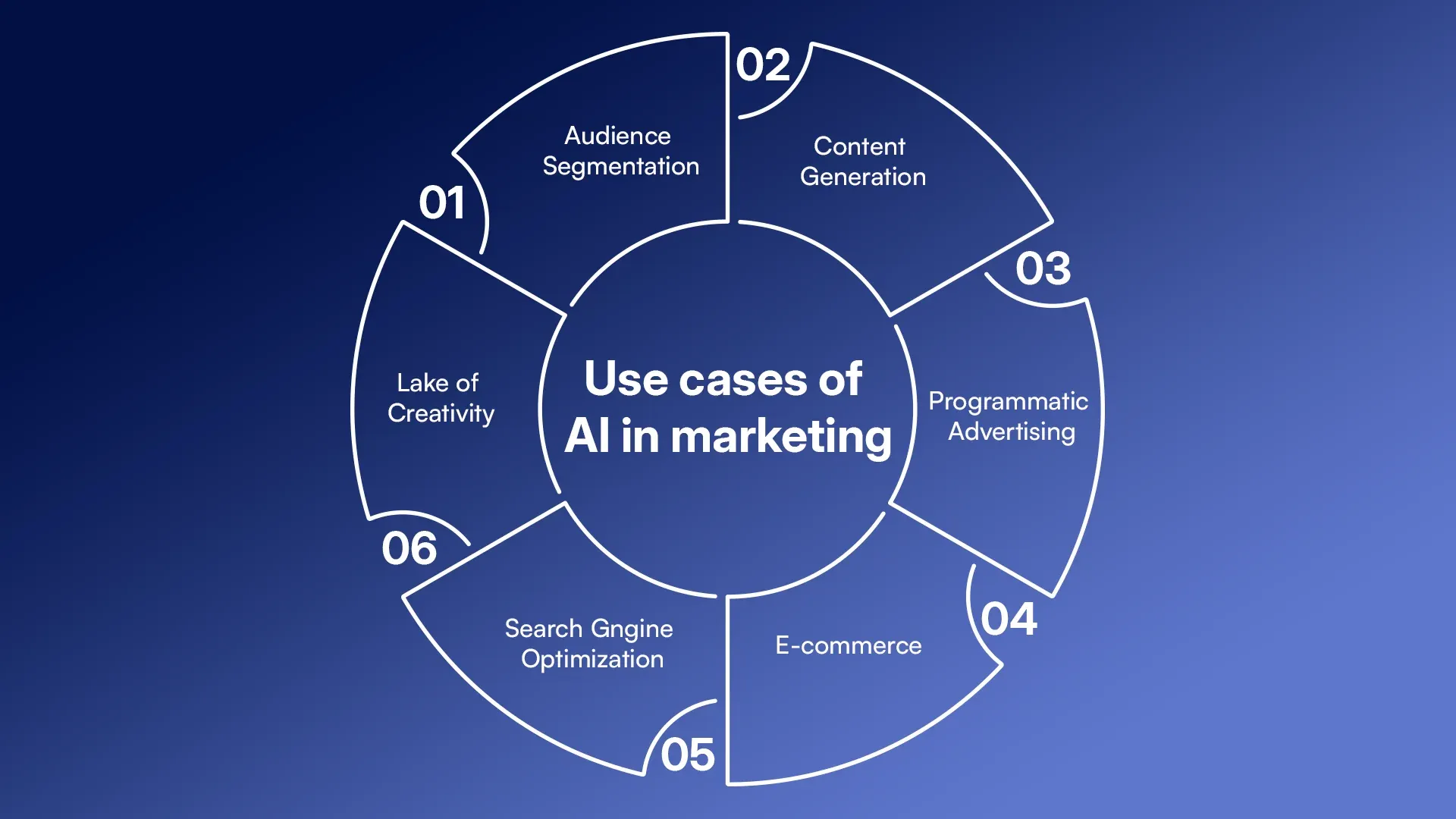
Marketing is all about emotions.
You make the consumer feel your product. Your product not only becomes a tangible asset, but it also literally comes alive. And for that to happen, you need a magical touch. That’s where emotions come at play. But AI and emotions – how does that work?
Well, AI has surely evolved into much more than it was in its initial stages. And it has also impacted marketing by loads. Let’s see how AI and marketing work hand-in-hand in 2025!
Quick Summary
In this blog, we’ll go through the importance and the applications of AI when it comes to marketing. We’ll look at their benefits and also through a simple work process of how we can use AI to complement marketing.
What is AI marketing?
AI marketing refers to using artificial intelligence to boost marketing strategies. You have data, machine learning and automation on your side, all of which is used to optimize campaigns.
From Netflix movie recommendations to AI-powered email campaigns – AI has already made a mark in marketing.
Key Benefits of Using AI in Marketing
There are many benefits of AI in marketing. Choosing a technology like it provides you with an evident advantage that helps you stand out from your competitors. Some of the major benefits include:

-
AI helps to improve the return on investment (ROI)
AI helps analyze campaign performance and optimizes spending. Ever wondered how e-commerce giants like Amazon suggest exactly what you need. That’s simply AI working behind the scenes.
-
AI helps to Faster, smarter decision-making
AI can crunch massive amounts of data in a couple of seconds. This decreases guess work and helps forecast with solid, data-backed strategies.
-
AI Helps Enhance customer relationship management (CRM)
AI helps businesses understand the wide variety of customer preferences. This boosts engagement, and with tools like chatbots – you get instant and superfast responses that keep customers happy.
-
AI helps with More accurate measurement of KPIs
You don’t need to manually track performance now. With AI, you have real-time insights into what’s working and what’s not.
AI helps to More meaningful insights from customer data.
AI can help read customer behaviour like a book. This matters loads when businesses want to predict trends and offer a customized user experience for each user.
-
AI understands business needs better with time
With technologies like NLP and machine learning, AI gets smarter over time. It adapts, refines and adapts to changing business needs as well as consumer needs.
-
AI can use data analytics to uncover trends
AI takes a deep dive into data to uncover emerging trends. This helps brands get a competitive edge. Studying trends is essential if you want your product/service to stand out from the rest.
A step-by-step guide on how to incorporate AI into your marketing strategy
So, you’re now sold on AI. With its many benefits that we already discussed, this step-by-step guide will show you how to seamlessly incorporate AI into your marketing strategy. Learn practical tools, techniques, and tips to boost efficiency, personalize campaigns, and drive better results.

Step 1: Establish goals
This is the first step of any given marketing strategy. You must have clear goals that you can accomplish in a given time frame. Here’s where the journey of AI and marketing begins.
Step 2: Acquire the right talent
AI and marketing need experienced personnel that can analyze and work through data analysis reports. Using AI is only one part of the spectrum. It still needs to be guided and steered through.
Step 3: Adhere to data privacy laws
Complying with GDPR and other regulations as you analyze data is crucial. Make sure that you keep customer trust intact at all times.
Step 4: Test the quality of the data
AI is only as good as the data you feed it. If you don’t provide it with quality data, it won’t churn out quality results. It’s as simple as that. So, get the quality of your data to be as pure as possible.
Step 5: Choose the solution that’s right for you
From chatbots like Drift and to AI-powered ad platforms like Google’s Performance Max – pick solutions that fit your needs the best.
Also Read: AI in Finance: Benefits, Use Case, and More
Some Challenges of using AI in marketing
AI isn’t a magic wand. It comes with a wide variety of challenges as well. To make sure that you get 100% of its utility, you need to navigate its challenges too. Let’s look at some of the most common challenges that trouble marketers looking to integrate AI:

-
Ensuring the quality and accuracy of data
As we’ve previously stated, it is essential for the quality of data to be top-end. Using cheap, non-standard data can lead to your AI marketing endeavours yielding crappy results. Make this the #1 priority – getting authentic and original data.
-
Training AI solutions
Training AI takes a considerable amount of time. They can’t be trained overnight and be expected to produce results the other day. You’ll need to put in the necessary time and effort to train it, making sure that they learn, adapt and improve along the way.
-
Complying with privacy laws
Privacy is one of the most sensitive topics nowadays. It is essential that you adhere to the global privacy guidelines, making sure that the data that you source isn’t violating any privacy laws. You could get into deep water if you (even by mistake) violate stringent privacy laws.
Use cases of AI in marketing
Now that we’re done with the benefits and challenges, it’s time to move to the various use cases of AI in marketing. AI and marketing represent a power-packed combination that caters to a wide variety of needs. Here are some of them:

1. Audience segmentation
AI helps categorize audiences on the basis of a wide variety of demographics like age, gender, sex etc. It does so by judging their user behaviour, making calculated decisions and getting you efficient segmentation.
2. Content generation
This is one of the most impactful ways in which AI has revolutionized marketing once and for all. It includes various generative AI tools like ChatGPT, Gemini, Claude, Grok and more that get you marketing pieces like social media copies, captions, product brochures and more.
3. Programmatic advertising
AI will buy and place ads in real-time, determining which places can get the highest ROI out there. This is one of the best ways in which you can maximize ROI and rake in the profits with proper public outreach.
4. E-commerce
AI powers recommendation engines, making online shopping more personalized (think Spotify playlists and Amazon suggestions).
5. Search engine optimization
AI analyzes keywords, trends, and search intent to optimize content for better rankings. This helps especially as the motive of content such as blogs and articles is to maximize search engine visibility.
6. Lake of Creativity
AI is great at data crunching. But, it still lacks human creativity. AI-generated content often needs a human touch. That’s where editors and content writers come at play, humanizing content and making it human-friendly.
Conclusion
Well, that’s pretty much about it!
We went through what AI is in marketing, along with understanding its challenges and use cases. AI has now become an inseparable element of most fields in the modern world. And marketing is no different from that.
By the way, you can get the best tools for AI with Rejoicehub LLP by your side! We help you better your marketing endeavours with AI tools that provide comprehensive marketing services.
Frequently Asked Questions
Is AI marketing expensive?
Not necessarily. There are free and paid AI tools, so businesses of all sizes can leverage AI.
Can AI replace human marketers?
Nope! AI enhances marketing, but creativity and strategic thinking still need human input.
What’s the best AI tool for marketing?
It depends on your needs. ChatGPT for content, Google’s AI for ads, and HubSpot for CRM automation are great places to start.
How does AI improve customer experience?
AI personalizes interactions, predicts needs, and provides instant support via chatbots.